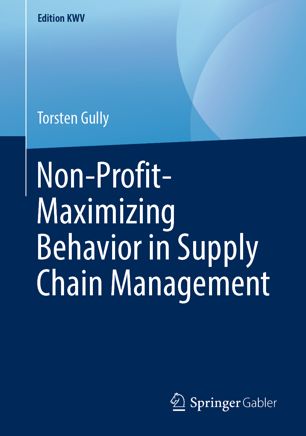

Most ebook files are in PDF format, so you can easily read them using various software such as Foxit Reader or directly on the Google Chrome browser.
Some ebook files are released by publishers in other formats such as .awz, .mobi, .epub, .fb2, etc. You may need to install specific software to read these formats on mobile/PC, such as Calibre.
Please read the tutorial at this link: https://ebookbell.com/faq
We offer FREE conversion to the popular formats you request; however, this may take some time. Therefore, right after payment, please email us, and we will try to provide the service as quickly as possible.
For some exceptional file formats or broken links (if any), please refrain from opening any disputes. Instead, email us first, and we will try to assist within a maximum of 6 hours.
EbookBell Team

4.7
86 reviewsNon-profit-maximizing behavior in supply chain management focuses on the human component in supply chain management. It develops behavioral models that consider individual and social preferences of supply chain members in order to improve our understanding of actual decision-making in supply chain management.
The author challenges the common assumption of a selfish homo economicus and introduces the human component in three experimental studies: In the first study, he examines the effect of individual risk preferences in the Newsvendor context. In the second study, a common group identity to overcome incentive conflicts in forecast sharing is studied. The third study explores underlying cognitive processes in contractual decision-making.
Potential readership includes scholars and graduate students who are interested in the field of behavioral operations management and practitioners looking for behavioral aspects of decision making in supply chain management.